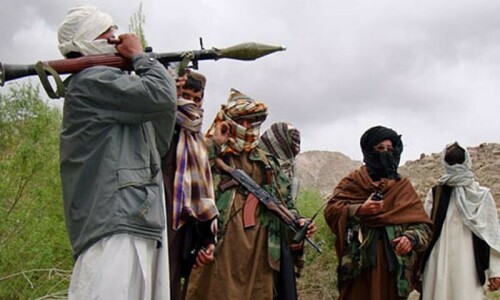GILGIT: Traders observed yet another strike in Gilgit-Baltistan on Thursday against the imposition of taxes on residents by the government without determining the constitutional statues of the region.
“The government’s attempt to divide trade bodies, bazaar committees, transporters and political parties has further strengthened the protesters who have now announced a series of strikes, long marches and sit-ins across GB against the imposition of taxes,” the demonstrators said.
Surprisingly, while life in the region came to a standstill following the strike, GB Chief Minister Hafeezur Rehman and his key ministers went to Lahore on Thursday to attend a wedding ceremony.
The strike call was given by GB Central Traders Association, Awami Action Committee, GB Chamber of Commerce and Industry, transporters’ association and opposition parties — Pakistan Tehreek-i-Insaf, Pakistan Peoples Party, Islami Tehreek Pakistan, Majlis Wahdatul Muslimeen and Jamiat Ulema-i-Islam-Fazl.
The imposition of taxes in GB was also opposed by the Supreme Court Bar Association, High Court Bar Association, Hotels Association, Petroleum Dealers Association, Transport Association, Timber Association and Minerals and Gems Association.
Markets, shops and business centres remained closed throughout the day in almost all 10 districts of the region, while public transport remained off the main roads, including the Karakoram Highway.
The protesters also threatened the government to face a Faizabad-like sit-in in every district. “A march towards Islamabad will also be organised if the government does not accept our demand,” said Nisar Hussain Raki, president of the GB Chamber of Commerce and Industry.
“First decide our constitutional position and then impose any tax being levied in other provinces,” he said, adding that it was unconstitutional to impose taxes on traders when no benefit was being derived from it by the locals, traders or even the government.
The president of the traders’ association, Muhammad Ibrahim, regretted that the traders were already facing huge losses because of the ‘cleaning taxes’ and now the government had introduced banking fee on transfers and transactions as well.
“How is the region supposed to flourish when the government won’t allow businesses to operate?” he asked.
Published in Dawn, December 22nd, 2017













































